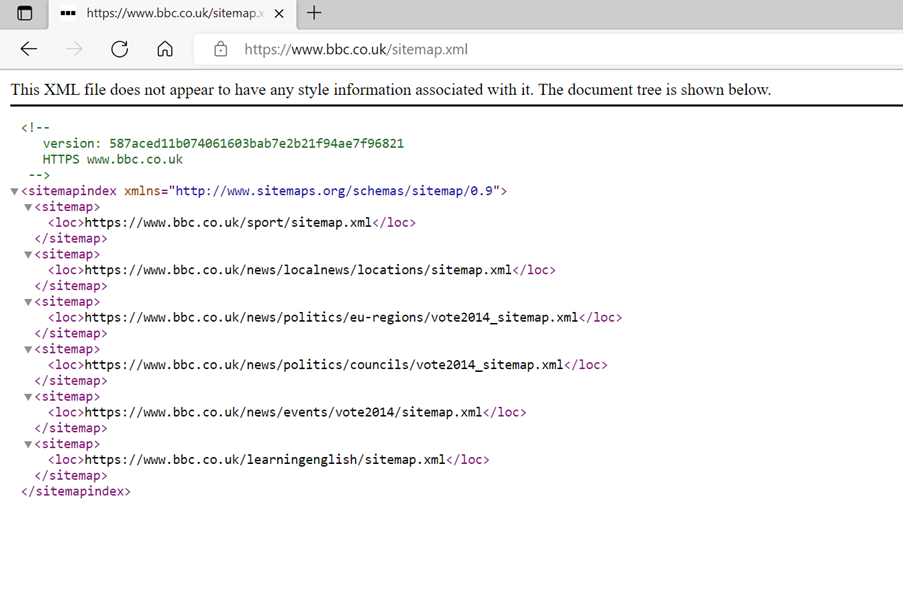For your site to rank in search engines, search engines need to know it exists. In this guide we’ll look at whether submitting your website to search engines matters and how you can do it.
In this guide we'll cover:
- Do you need to register your website with search engines?
- How can you submit your website to search engines (including Google and Bing)?
- You've submitted your website to search engines, so why can't you find it?
- Why submitting your website to search engines is just the beginning.
Do you need to register your website with search engines?
The short answer is no, you don’t really need to register your website with search engines. That’s because search engines are better at finding websites than ever before.
This means that for the most part, Google and other search engines will find any website eventually.
However, submitting your website to search engines may help speed up the process.
By following the process required to submit your website to search engines, you’ll also get a deeper understanding of your site.
How can you submit your website to search engines?
To submit your website to Google and Bing, you’ll need to create a sitemap and submit it via Google Search Console and Bing Webmaster Tools.
As Yahoo’s search engine is powered by Bing, you don’t need to submit your site map separately to Yahoo. The same goes for DuckDuckGo, which also uses data from Bing.
So, how do you get a sitemap? Well, the first thing to do is check if you already have one. Many website creation platforms (including WordPress) automatically create sitemaps. Alternatively, if you used a web designer they may have created one for you.
You can usually find a site map by visiting example.com/sitemap.xml or example.com/sitemap_index.xml (where example.com is the address of your website.)
If that doesn’t work, you can also check your site’s robots.txt file, which usually contains the location of any sitemap. You can view robots.txt by visiting example.com/robots.txt (again, replace example.com with the address of your website.)
The sitemaps for the bbc.co.uk website

Can’t find a sitemap at all? Follow this guide to create one.
How to submit your website to Google
- If you haven’t already done so, add and verify your site in Google Search Console (GSC). GSC is a powerful tool which can provide you with important information about how Google sees your website. It’s also free!
- Log into GSC
- Click “Sitemaps” in the lefthand menu
- Complete your sitemap URL in the “add a new sitemap” section and click “submit”
- Repeat the process if you have multiple sitemaps.
How to submit your website to Bing
- If you haven’t already done so, add and verify your site in Bing Webmaster tools.
- Log into Bing Webmaster tools
- Click “Sitemaps” in the lefthand menu
- Click “Submit sitemap”
- Add your sitemap URL in the popup box which appears and click “submit”.
- Repeat the process for any other sitemaps you have.
You’ve submitted your website to search engines, so why can’t you find it?
Just because a search engine knows about your website, doesn’t mean that it will rank your website highly in its results.
If you can’t find your website in search results, it might just mean you need to scroll through 10s of pages before you find it.
A simple way to find out if Google knows about your website is by searching for site:example.com (replacing example.com with your site’s address). If nothing shows up, Google doesn’t know about your site.
For a more detailed check on what search engines know about your website, you can use GSC’s Coverage report and Bing’s Site Explorer.
Both these tools allow you to see which pages Google and Bing have indexed (if a page is indexed, it means a search engine knows it exists).
If a page isn’t indexed by Google, you can find out why by using GSC’s URL Inspection tool. If a page isn’t indexed when it should be, the most common reasons are an incorrectly applied noindex tag, or Google is prevented from crawling a page you want it to crawl by robot.txt. You can learn more about the index coverage report here.
Related: This guide introduces you to SEO from a technical point of view.
Why submitting your website to search engines is just the beginning
Submitting your website to search engines ensures search engines know your website is there but, if you want your website to show up near the top of Google, there’s far more you need to do.
Search engine optimization (SEO) is a huge task, but it’s crucial if you want your website to rank well in search engines.
SEO basics include keyword research and usage, URL and site structure and link building. You can learn more about how to rank higher in Google in this guide.
The GoDaddy website builder comes with a ready sitemap for you to submit
Summing up
There’s no need to submit your site to search engines, they should eventually find it on their own. However, you may want to submit your website to Google and Bing via GSC and Bing Webmaster tools in order to speed up the discover process.
It’s also important to remember that submitting your site to search engines is only the start of the SEO process. Don’t expect to click submit in GSC and rank number one for your chosen search terms the next day.
Instead, you’ll need to develop an SEO plan and keep working on it.
Photo by Ethan Robertson on Unsplash








